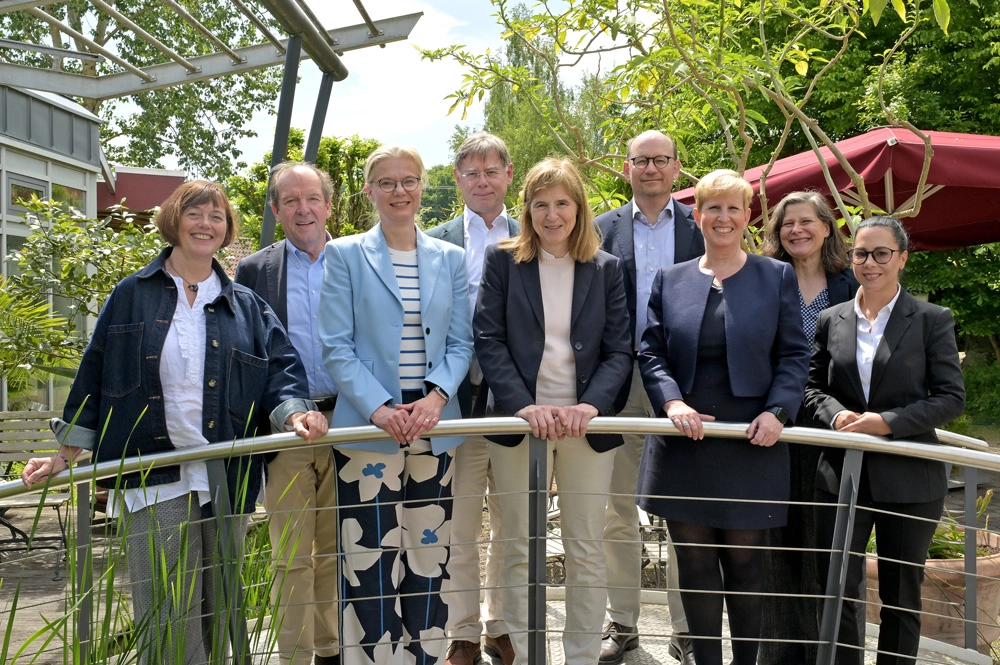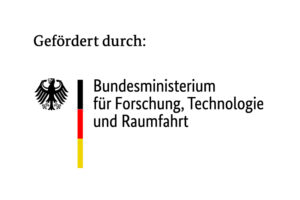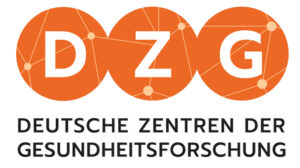The DZKJ
Healthy children and adolescents through science – for a better life
The DZKJ
Healthy children and adolescents through science – for a better life
About the DZKJ
The German Center for Child and Adolescent Health
Childhood and adolescence are key developmental stages in a person’s life. During this time, fundamental decisions are made that shape health outcomes throughout life. Consequently, investing in the health and well-being of children and young people is one of society’s most important responsibilities.
With this in mind, the federal government decided to establish the German Center for Child and Adolescent Health (Deutsches Zentrum für Kinder- und Jugendgesundheit, DZKJ) in 2018. As one of eighth German Centers for Health Research, the DZKJ offers scientists the opportunity to conduct interdisciplinary research into the causes of common and rare diseases of childhood and adolescence as well as the development of innovative therapies and prevention strategies. A total of 24 research institutions at seven locations are involved in the DZKJ.
The DZKJ plays a vital role in developing and implementing initiatives to promote child and adolescent health. It significantly contributes to advancing the prevention, diagnosis, treatment, and research of diseases affecting children and adolescents.
The DZKJ manifest can be viewed here.


Our mission
Healthy children and adolescents through science – for a better life
Even though Germany has a very high-quality healthcare system by international standards, the special physical and psychological needs of children and adolescents have not yet been sufficiently considered in medical research and care.
The primary objective of the DZKJ is to create optimal research conditions for child and adolescent medicine, to combine and consolidate existing expertise, accelerating the translation of research findings into practice, and ultimately enhancing the long-term healthcare of children and adolescents. In order to achieve this goal, it is necessary
- to know and consider age-specific developments and risks,
- to understand disease mechanisms,
- to diagnose diseases at an early stage,
- to develop new therapies,
- to prevent health restrictions effectively,
- and to raise public awareness of the issue of children’s and young people’s health in the long term.
Our „Why“
The challenges
Around 14 million children and young people live in Germany. Fortunately, most of them are able to lead a healthy life. However, the number of children and young people with chronic diseases such as asthma, diabetes or obesity has been on the rise for years, and the prevalence of mental health problems in childhood and adolescence is also increasing every year. Many of these conditions can significantly affect the quality of life and lead to lifelong morbidity. This presents a challenge to the healthcare system, as the affected individuals are often dependent on medical care for the rest of their lives.
There are also children and young people who suffer from rare diseases. There are often no suitable forms of diagnosis or therapy for them, as it frequently takes months or even years before a rare disease is identified. Genomic studies play a particularly important role in researching rare diseases, paving the way for personalized precision medicine. However, the search for the genetic causes of rare diseases is often like looking for a needle in a haystack.
The development of specific drugs tailored to children and adolescents also represents a scientific and regulatory challenge. Children were excluded from clinical research for a long time, but the results on the mechanisms of action in adult patients cannot simply be transferred to children and adolescents.
Pediatric and adolescent medicine must face these challenges in order to ensure comprehensive and high-quality care for young patients. Medical innovations must also be implemented more quickly in medical practice so that they benefit the entire population, including vulnerable groups, at all levels of medical care. This is what the ZSEG is committed to – we stand up for a healthy future for our children and young people!

Partner sites
DZKJ partner sites
As a research network, the German Center for Child and Adolescent Health combines the specialist expertise of university hospitals and universities at seven partner sites: Berlin, Göttingen, Greifswald/Rostock, Hamburg, Leipzig/Dresden, Munich and Ulm. Experts from various fields of research work together here on a cross-thematic basis. In addition to the university hospitals and universities, non-university research institutions such as Max Planck Institutes, Fraunhofer Institutes, Helmholtz and Leibniz Centres are also involved. The two-year start-up phase is being funded by the Federal Ministry of Education and Research (BMBF) with a total of 30 million euros. This will be followed by long-term institutional funding. By fostering strong networks and expanding existing research structures, the DZKJ establishes ideal conditions for interdisciplinary research excellence and the swift application of findings in practice, aiming to promote the long-term healthy development of children and adolescents. In the two-year start-up phase, the focus is particularly on the development of new diagnostic and therapeutic procedures as well as on prevention, taking into account the different developmental stages of adolescents.
The map will take you to the subpages of the seven DZKJ partner sites.

GREIFSWALD / ROSTOCK
The Greifswald/Rostock site has
special expertise in community
medicine, psychosocial
and mental health, as well as
expertise in telemedicine and eHealth.
HAMBURG
The focus of the DZKJ site in
Hamburg is on research into
of rare genetic diseases.
BERLIN
The Berlin site has particular
special expertise in rare genetic and chronic
and chronic inflammatory diseases,
and the investigation of early determinants
for a healthy development
and the development of diseases.
GÖTTINGEN
The Göttingen site has particular
special expertise in the
neurosciences.
LEIPZIG / DRESDEN
The Leipzig/Dresden site stands for
for expertise in the fields of
Epidemiology, environmental research, immunology,
infectious diseases, obesity and mental health.
mental health.
ULM
The Ulm site focuses on
Metabolism, hormones and obesity,
normal and impaired development of the
immune system, as well as mental disorders
and their immunometabolic basis.
MUNICH
The Munich site contributes its
expertise in immunology and metabolism,
computer sciences and cell and gene
and gene therapy.


